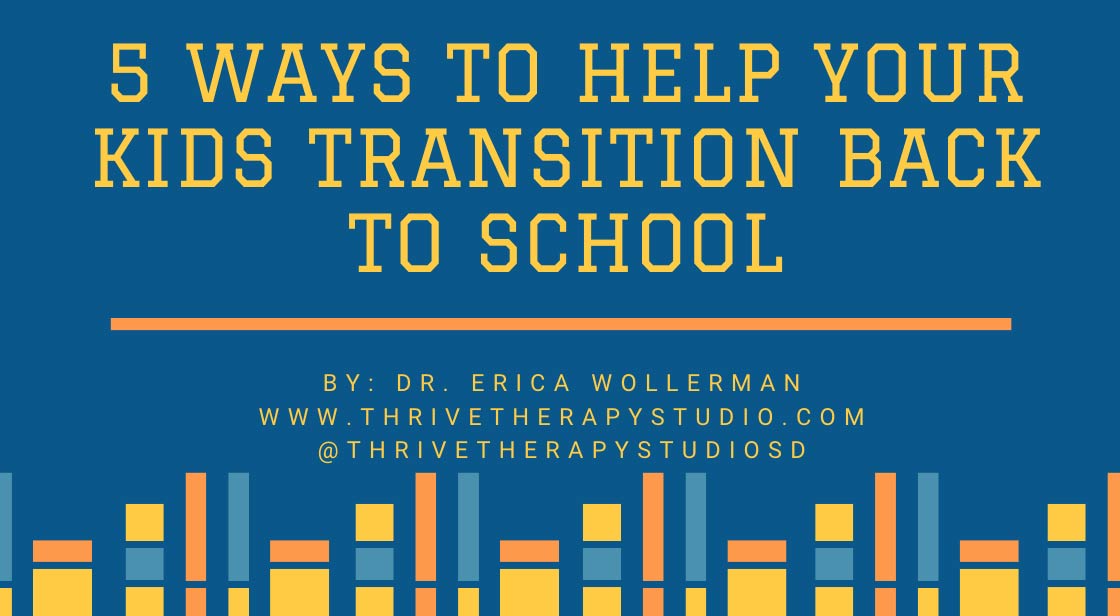As many schools are considering returning to in person learning, so many kids and their parents are feeling concerned about both safety in this setting but also how to manage the transition itself of returning to school in person. Here are some thoughts about how parents can support their kids in adjusting to being in person particularly because it is likely to be different from the last time they were in school due to masks and social distancing. Plus, it is extra strange because we have all been home for so long so this is truly a unique situation!
1. Manage expectations
One of the most important things we can do as parents is to really manage our own expectations of this situation as well as our kids’ expectations. Talking through what your kids think things will be like and making sure to present whatever you know to be true (in terms of limits around socializing or mask wearing or partitions, etc.) so that they can have the most appropriate expectations possible will help. We want to essentially avoid them thinking it will be just like it has been before at school so that they are not surprised. I think it is helpful to also manage expectations about how it might feel to be back and not paint them in an overly glowing light as it is likely to be challenging and wonderful all at once.
2. Give ample time for discussions about it ahead of time
Sometimes when parents or kids are worried about something, it can feel easier to avoid thinking or talking about it until you have to. This is a situation that I think might require more conversations ahead of time to explore expectations, emotions, thoughts, fears, etc. Giving your child some space and time to think about it as well as to talk about it together before the week of going back to school will help. Maybe just checking in once a week for the 3-4 weeks ahead of time would be a helpful tool for your child to track the time leading to going back as well as to allow some emotions to come up to process ahead of time if possible.
3. Consider the pros and cons of returning to school
For so long, we have been living in a pandemic that seemed to require we forget just how much we loved our past lives. In order to cope, we have had to focus A LOT on the pros of staying home and avoid thinking about the cons. Now it is time to flip this situation and focus more on the pros of going back to school and the cons of staying home. There certainly are cons to going back but if you are committed to having your child go back to school, you want to spend just some time on exploring those so that you have validate their feelings, and then try to help them elicit their own pros of going back and cons of staying home. Try to be open about your own mixed feelings as well as acknowledge that their responses are expected after this much time at home.
4. Consider the situation
Similarly, we want to make sure to help our kids understand the context of their reaction. If they are anxious or scared or angry about going back, let’s give them some context around that to help them understand their own reactions. Anxiety is totally normal and expected after being home for so long particularly as we have been told that staying home is saving our lives and those of our loved ones and community members. Of course it feels scary to stop doing that! Anger also makes a lot of sense as we have lost so much control in our lives that it might feel frustrating to feel that we are not in control of this choice either. While most schools offer a choice between virtual or hybrid learning, a lot of it is out of our control and as parents, we might be making the choice we think is better long term for our kids even if they are opposed. This makes sense so make sure to help explain the context of the situation to your children so that they do not think they are alone in their feelings.
5. Validate their feelings and change plans as needed
As I have been alluding to, make sure to explore and validate your child’s feelings. They are most likely expected and normal reactions to a super abnormal situation. If your child is adamant about not going back, maybe set a timeline with them of how long they will try it out before going back to virtual learning (if that’s a possibility for you and your family). It can help to let them know this is temporary in that it could change or in that it is only for a few months before summer and can help them get ready for the fall, when school is likely to be full time in person. A gradual reintegration to school might be helpful in particular for kids who are anxious or upset about going back to school.
I hope these tips are helpful in this big transition back to some semblance of normalcy. If you or you family need additional support, please do not hesitate to reach out to us at Thrive or to another mental health provider in your area!
Reach out to start
your healing journey


